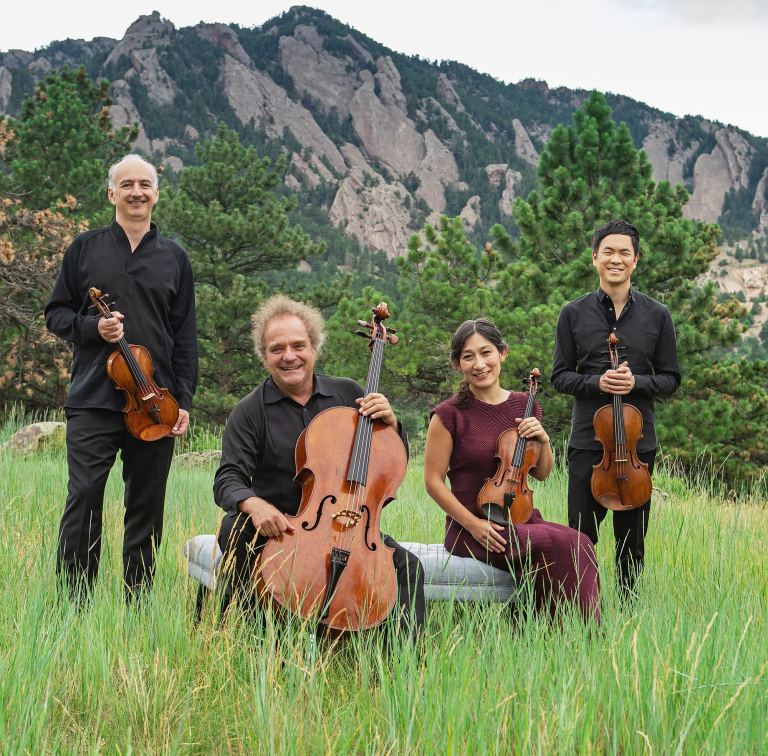A Recital by the Takács Quartet

Please Note:
Tickets will go on sale to the public April 16.
30 minute hold in cart
HAYDN: String Quartet in G minor, Hob. III/74, op. 74, no. 3, “The Rider”
JANÁČEK: String Quartet No. 1 after L. N. Tolstoy, “The Kreutzer Sonata”
--
BEETHOVEN: String Quartet in C major, op. 59, no. 3, “Razumovsky”
Hailed by The New York Times for "making the most traditional of works feel radical once more," the Grammy award-winning Boulder-based Takács Quartet returns to Aspen.
The somewhat silly nickname of Haydn’s "Rider" quartet came from the galloping rhythm in the last movement. But there's nothing silly about this work, one of Haydn's most mature and brilliant achievements in the genre. In his earlier quartets, Haydn tended to give the first violinist most of the heavy lifting, but by this time, all four players are at full throttle. The slow movement is especially notable for its grandeur and deep solemnity. In the finale, Haydn does give the first violinist some showy passages while the "rider" bounces along.
Tolstoy’s novel "The Kreutzer Sonata" provided the inspiration for Janack's passionate and emotionally complex first quartet. The book begins with strangers on a train discussing relationships between the sexes, marriage and divorce. You can hear the rhythm of the train in the quartet's first movement. One of the strangers confesses he has murdered his wife and been acquitted. The rest of the novel tells the story of his unhappy marriage, his suspicions that his wife had an affair, and how he now must live with the fact of having murdered her. His wife, a pianist, and her lover, the violinist, rehearse and perform Beethoven’s "Kreutzer" Sonata together, giving the novel its title. Janacek's own obsession with a happily married woman forty years younger than him also seems to have found its way into this intense and tempestuous work.
From its searching opening to its euphoric conclusion, Beethoven's radiant Op. 59 No. 3 will take you on a musical journey full of both contrasts and cohesion. One of three quartets dedicated to the Russian ambassador to Vienna, Count Razumovsky, it acquired the nickname "Eroica" because of its glorious, triumphant finale.
Hear one of the world's great quartets in three treasures of the repertoire!